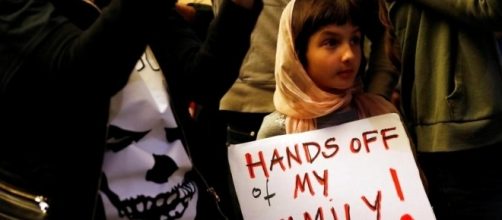Trump's travel ban on several #Muslim countries will take limited effect today after a push by the White House for the case to be reviewed by the Supreme Court on Monday, June 26th. The limited ban will still allow those who carry green cards/visas to enter the United States, however, all refugees are barred from entering. Refugees who were on their way to the United States will be allowed to enter. This ruling comes after Trump's initial #travel ban was denounced as "too harsh" with an existing refugee crisis on hand. Trump is pleased with the revised travel ban and continues to praise it as an integral part of keeping America safe from terrorism.
Great day for America's future Security and Safety, courtesy of the U.S. Supreme Court. I will keep fighting for the American people, & WIN!
— Donald J. Trump (@realDonaldTrump) June 27, 2017
Trump goes into action
Today, the White House released a memorandum from President Trump to Secretary for the Department of Homeland Security John F. Kelly to submit a report required under Section 710 of the Department of State Authorities Act, Fiscal Year 2017. This section specifically calls for an inquiry by Homeland Security into the usage of social media by terrorist groups and how the American government can better analyze and combat these groups through social media. This may or may not include restricted access to certain sites, social media platforms, etc.
This would be coupled with the lingering sting of the Supreme Court after ruling that public browser history would be open to tech companies looking to strengthen their grip on public thought.
Future of public safety
With the ban to take limited effect tonight, once can only imagine what this inquiry by Homeland Security will bring to fruition in terms of internet privacy and protection. This brings to mind familiar territory in relation to the Patriot Act of 2001 after the 9/11 attack in terms of how our privacy will be handled. Do we give up certain rights and freedoms for the "safety" of our country, and as further protection against extremists?
The world has changed dramatically since 2001, most prominently in the social sphere of media access.
We pride ourselves on staying within reach of relevant news thanks to updates from Twitter and other news sites that allow us to pinpoint breaking stories based on our interests. If bringing about public safety involves the restriction of our right to obtain information via the world wide web, are such measures worth all the trouble? Will we be able to overcome these extremists while still retaining our rights and privileges?


